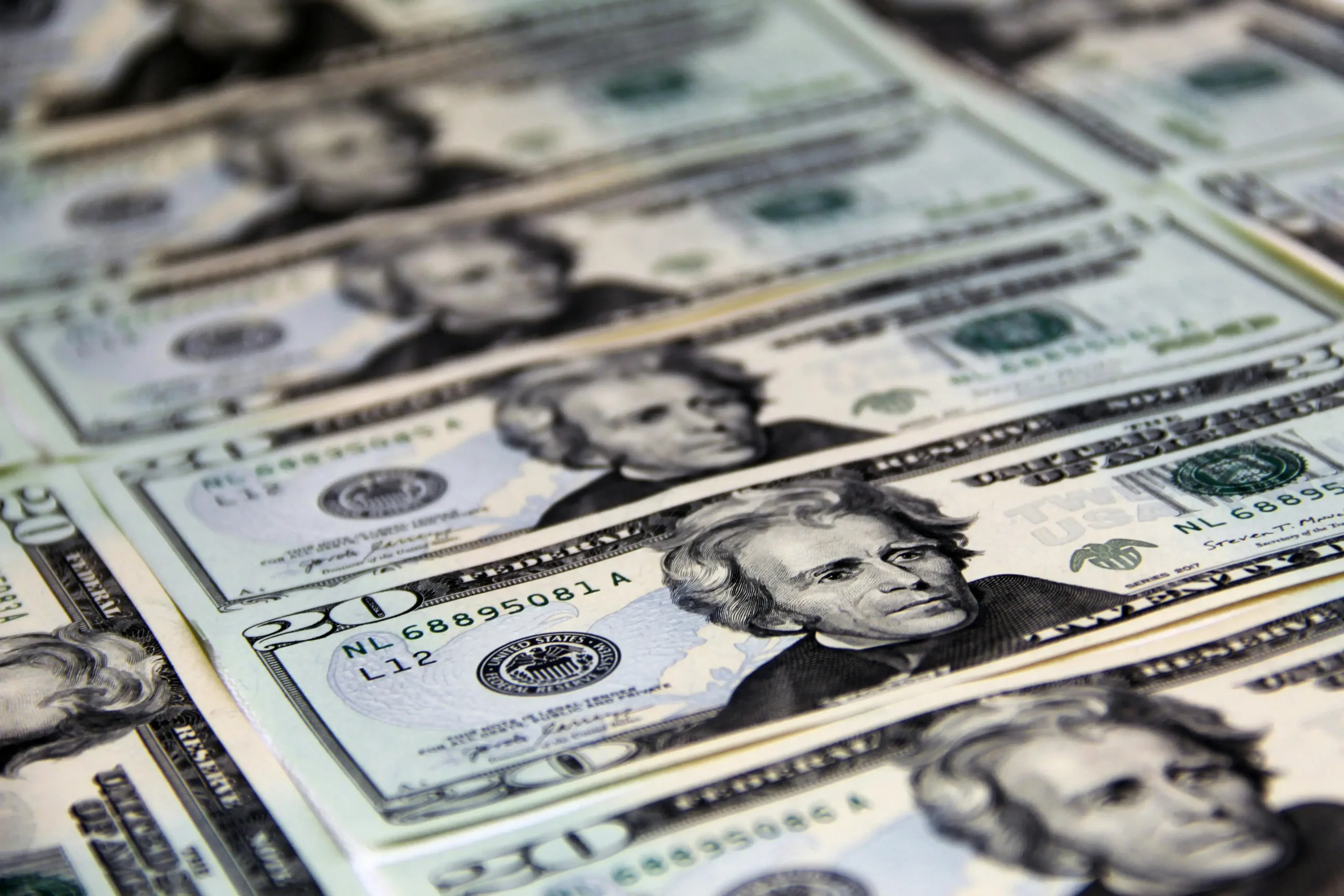BRICS: The Dollar Has Collapsed 25% Since 2020
28.03.2024 20:00 2 min. read Kosta Gushterov
The United States is experiencing significant geopolitical turmoil and struggling with inflationary pressures. Escalating interest rates have led to an unsustainable economic model, exacerbated by de-dollarization efforts within the BRICS countries, which have resulted in a marked depreciation of the US dollar over the past four years.
The data reveals about a 25% decline in the dollar’s purchasing power since the start of 2020, indicating that one US dollar is now only worth $0.75 worth of goods. This loss of value is symptomatic of the currency’s inflationary state and highlights its deteriorating condition amid the global trend towards financial diversification.
In recent years, many countries, including the United States, have faced economic challenges. Despite stabilization efforts, the US economy continued to struggle with inflationary pressures at the start of this year.
De-dollarization initiatives within the BRICS group have further weakened the US dollar, causing its purchasing power to drop significantly by 25% since January 2020. This decline reflects the declining ability of the dollar to acquire goods in the country. However, inflation is only one facet of the problem, with rising debt levels and global economic positioning also contributing to the currency’s woes.
President Biden has proposed $24 billion in Congressional appropriations to support the war effort in Ukraine amid a looming debt crisis that threatens the status of the U.S. dollar. The Congressional Budget Office has warned of the potential consequences of inaction on the debt issue, citing significant fiscal risks to the economy.
Central banks around the world reacted by increasing their gold reserves as a hedge against a potential collapse of the US dollar. This trend reflects the growing concern about the stability of the dollar on the international stage.
Geopolitical tensions, combined with inflationary pressures and the de-dollarization initiatives of the BRICS countries, further complicate the outlook for the US dollar. The emergence of alternative currencies, digital assets and other factors are contributing to a more diversified global economic landscape, casting doubt on the dollar’s future supremacy if current trends persist.
-
1
U.S. Government Shutdown Stalls Key Jobs and Inflation Data
03.10.2025 16:03 2 min. read -
2
Political Battles Overshadow America’s Growing Fiscal Crisis
13.10.2025 10:00 2 min. read -
3
U.S. Faces Another Shutdown Showdown as Deadline Nears
30.09.2025 15:30 2 min. read -
4
US Shutdown: Here is When it Could Finish According to Polymarket
06.10.2025 18:00 3 min. read -
5
Wall Street’s New Crystal Ball: Why Bank Earnings Are Critical Amidst Economic Uncertainty
12.10.2025 23:00 3 min. read
Trade Tensions Ease? Trump Optimistic Ahead of Xi Summit
US-China trade tensions remain in focus as President Donald Trump described the threatened tariff increases on Chinese imports as “unsustainable.”
Political Battles Overshadow America’s Growing Fiscal Crisis
The latest deadlock in Washington over a partial government shutdown highlights a recurring pattern: political posturing often overshadows the country’s more pressing financial challenges.
Wall Street’s New Crystal Ball: Why Bank Earnings Are Critical Amidst Economic Uncertainty
The usual deluge of economic data that guides Wall Street has run dry, interrupted by an ongoing federal government shutdown.
Markets Jittery as U.S.-China Trade Spat Revives Uncertainty in Global Supply Chains
Tensions between the United States and China have flared again after President Donald Trump imposed steep tariffs on Chinese goods, prompting a measured response from Beijing.
-
1
U.S. Government Shutdown Stalls Key Jobs and Inflation Data
03.10.2025 16:03 2 min. read -
2
Political Battles Overshadow America’s Growing Fiscal Crisis
13.10.2025 10:00 2 min. read -
3
U.S. Faces Another Shutdown Showdown as Deadline Nears
30.09.2025 15:30 2 min. read -
4
US Shutdown: Here is When it Could Finish According to Polymarket
06.10.2025 18:00 3 min. read -
5
Wall Street’s New Crystal Ball: Why Bank Earnings Are Critical Amidst Economic Uncertainty
12.10.2025 23:00 3 min. read
James Hickman, founder of Sovereign Man, said that gold could soon displace the US dollar, citing developing countries and the BRICS that consider holding the US dollar in reserves risky.
Donald Trump has made a bold move to defend the U.S. dollar's dominance, warning BRICS nations against creating or supporting any currency that could rival it.
In just the first few months of 2025, rising global tensions have placed the spotlight on the growing divide between the United States and the BRICS alliance, with recent expansions.
The central banks of many developing countries are increasingly diversifying their reserves away from the US dollar and into gold and local currencies.
The trend of institutional Bitcoin adoption has gained momentum with UK pension fund Cartwright now stepping into the space.
Brown University has quietly stepped into the crypto spotlight, revealing a nearly $5 million investment in BlackRock’s spot Bitcoin ETF — marking the Ivy League school’s first known move into digital assets.
BSTR Holdings Inc. is set to become the fourth-largest public holder of Bitcoin, announcing it will launch with 30,021 BTC on its balance sheet as part of its public debut.
Bitcoin’s price has oscillated between $96,200 and $100,000 this week, mirroring the stabilization period that precedes fundamental changes in markets.
BTCS Inc. (Nasdaq: BTCS) has announced a historic move, revealing that it will issue shareholder payments directly in Ethereum (ETH).
BtcTurk, Turkey’s longest-running cryptocurrency exchange, has paused all crypto deposit and withdrawal operations following the detection of unusual fund movements worth around $48 million.
Buenos Aires is taking a significant step towards modern governance by implementing blockchain technology and zero-knowledge cryptography for digital identity issuance.
As the cryptocurrency market gears up for its next major surge—dubbed Bull Run 2.0—innovative platforms like Cardano and Solana are not only strengthening the foundation for broader adoption but are also being joined by new groundbreaking projects like Skyren DAO.
Bullish Global, the crypto exchange backed by Peter Thiel, is reportedly considering a U.S. stock market debut through an IPO.

